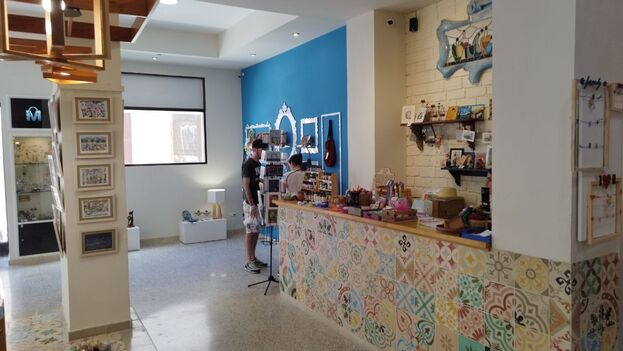
![]() 14ymedio, Madrid, 5 April 2023 — The private sector created almost twice as many jobs in Cuba in 2022 as did the State. The number of new employees amounted to 226,704, of which 79,912 were government employees, compared to 146,792 in “other forms of management,” according to data offered in the annual review analyzed on Tuesday by Prime Minister Manuel Marrero, who asked for “a different look” taking into account “the challenges imposed by demographic dynamics.”
14ymedio, Madrid, 5 April 2023 — The private sector created almost twice as many jobs in Cuba in 2022 as did the State. The number of new employees amounted to 226,704, of which 79,912 were government employees, compared to 146,792 in “other forms of management,” according to data offered in the annual review analyzed on Tuesday by Prime Minister Manuel Marrero, who asked for “a different look” taking into account “the challenges imposed by demographic dynamics.”
According to the report presented by the Ministry of Labor and Social Security, more than 4,653,000 workers are employed, although the figure will have to be confirmed pending an employment study announced this Monday that is intended to show “the magnitudes and structures of the economically active population.”
The document clarified that the percentage of employed women amounts to 39%, 34,000 more workers than in 2021. The largest number of female jobs were created in the sector of direct activities in the production and provision of services in the state and non-state sectors, “with a favorable impact of the jobs generated by the private sector.”
The data, however, reveal — as argued by Ariel Fonseca Quesada, National Director of Employment — a gender gap, since 34% of women do not have paid work, especially mothers who take care of children or the elderly, he added, without breaking down the data.
There are now 172,069 people who do not have any type of job, and Marrero indicated that many positions are vacant because of a lack of qualified personnel. He proposed to solve this problem through multi-employment.
The prime minister criticized some other issues that occur in the workplace, including unpaid employment of young people with the argument that they are being trained, and the low penetration of teleworking beyond the pandemic, and informal employment, against which, he insisted, it is necessary to fight.
“It is not a matter of going after them now, but of identifying them in order to protect the worker and demand that the employer assume his responsibilities,” he said.
At the opposite extreme is Alejandro Gil Fernández, Minister of Economy and Planning, who criticized “underemployment” as an evil that fundamentally plagues the sector that depends on the State budget and gives work to people who receive a salary without a specific task to do. Gil regretted that salaries do not serve to meet the needs of workers. Supposedly, as Minister, he could provide solutions.
At the meeting, other issues related to social assistance were addressed, such as the situation of women with children who cannot enter the labor market because they have no one to take care of their children. According to the prime minister, the expansion of child care through “little houses” has not been very successful, since their coverage is negligible.
In addition, the creation of “social work” as a university career was announced “on the basis of Cuban theory, which in no way resembles that of other countries, because it is part of our country’s model, in which social justice prevails,” an explanation that clarified little about the content and how it differs from the profession in other nations.
In this meeting, Cuban leaders addressed a problem of the first magnitude for the future of the country, which faces low birth rates, greater longevity and a massive emigration of people of working age, responsible for the maintenance of the State and pensions. But Cubans have the feeling that beyond words, what is systematically missing are changes.
“It continues the political discourse, the exhortations, but nothing is said about the fall in the purchasing power of the Cuban peso. Pensioners and many workers cannot cover the cost of the ’basic family basket’ [sold through the network of ration stores] with their income, and there is poverty. So what do we pensioners do who work for our Cuba, defend it, cut the cane and participate in agricultural and military mobilizations? Nothing has been done about these problems that we suffer; they are ignored, and there are no measures to solve them. We support the macroeconomic adjustment that has been mentioned, but its scope has not been made public,” a reader wrote in Cubadebate.
Translated by Regina Anavy
____________
COLLABORATE WITH OUR WORK: The 14ymedio team is committed to practicing serious journalism that reflects Cuba’s reality in all its depth. Thank you for joining us on this long journey. We invite you to continue supporting us by becoming a member of 14ymedio now. Together we can continue transforming journalism in Cuba.
